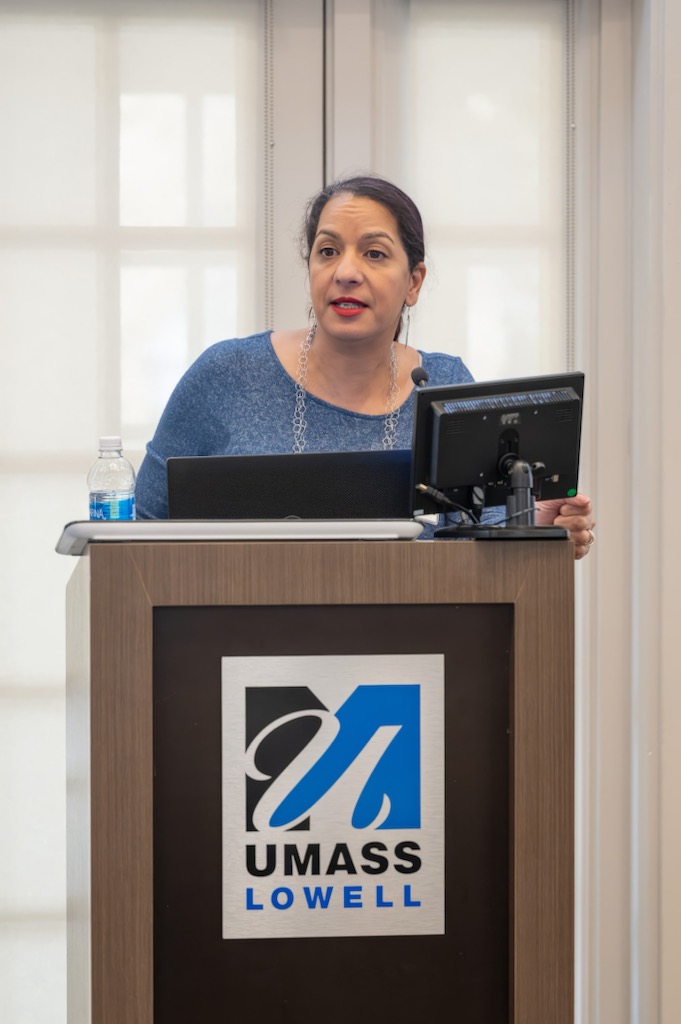A New Day: Working Through Math Trauma
Exclusive one-on-one support to heal your math trauma and transform your relationship with math.
Math trauma is real and affects math learners, parents, and teachers. But it doesn’t have to be that way…
Working through your math trauma can help you feel comfortable working with your children and students or choose your major without worrying about the math requirements.

Do you feel shame when thinking about your math skills or achievement?
- Are you a student who worries that math keeps you from succeeding in college (and beyond)?
- Are you a teacher who dreads the math lessons?
- Are you a parent who’s afraid of the day your kiddo asks for help with their math homework?
Let’s be honest. Math can suck.
Does the word “math” make you uncomfortable? Do you avoid math at all costs?
Math trauma is the inability or unwillingness to engage in math due to previous negative experiences tied to learning math:
- Feeling shamed for not learning the times tables quickly as a child.
- Being discouraged from asking “why” and told to “just do it this way” even if you don’t understand what you’re doing.
- Sitting in math classes that focused on memorizing, not understanding.
- Being told you’re “never going to get math” or that you’re “not a math person”.
- A math class focused on drills, exams, and the “right” answer.
- You have undiagnosed dyscalculia and (rightfully) freaked out whenever you had to do “easy” calculations because people thought you were lazy or stupid.
Many people suffer from math trauma and math trauma doesn’t just come from the classroom. Experiences that turned you away from math could have happened anywhere: among your peers, from your parents, in math class in school, and in outside tutoring.
And now you have to deal with the consequences.
As a student...
- Does the noise in your head get turned waaaaaay up in math class so you can’t think clearly?
- Do you feel yourself shrinking into nothing when you sit in math class?
- Do you dread the moment you get called on in math class?

As a parent...
- Do you feel ashamed when you hear yourself saying things that turn your child off from math?
- Do you dread the day your child asks for help with homework?
- Do you worry that you’re setting a poor example of what your child can and can’t do based on your confidence in math?

As a teacher...
- Do you enjoy planning all your lessons except math?
- Do you hate when students ask you “why” questions during math lessons?
- Do you spend less time teaching math than any other subject or rush through the math lesson so you don’t have to get into the weeds?

Let’s face it, in our world you need to be successful in math.
- You’re more likely to graduate college if you pass your math classes.
- The more math you know, the higher your income.
- Math is a required part of any standardized test (graduate school, nursing school, teacher certification, etc.)
- Your children will feel comfortable in math class if you have a good attitude about learning math.
- Your students’ math scores will increase because you’re more comfortable diving deeper into a lesson.
- You’ll feel more confident when math is brought up (such as in sales meetings).
- You’ll be able to do your own taxes or be able to understand your accountant (and check their work so you’re not getting ripped off).
- And on, and on, and on…
To put it simply, math helps you understand the world and you can't change the world if you don't understand it.
What if you could use math to help you, your children, or your students have a better grip on life?
- Want to be a scientist? Math is the foundational topic for all sciences.
- Want to be an entrepreneur? You’ll need to track your finances, metrics, and cashflow.
- Want to get that promotion? Math helps you track your projections and sales and stay on budget.
- Want to win an argument? Math helps break an argument down to find weak points.
- Want your child to do well in school? They’ll need help with their homework.
Imagine having the confidence of knowing that you can succeed in math. Imagine...
- if math was just “another class”, with no drama or fear in your head.
- choosing your major without worrying about the math requirements.
- a math class without negative emotions getting in the way of your thinking.
- reassurance that you did all you could for your child’s math development.
- feeling confident that you can answer your students’ questions.
- knowing math may be hard but feeling confident that you can do this work.
- feeling capable in your math and science class and have every right to ask or answer questions.
“What can be done to help students be more successful in math?”
Math Educators (like me) have researched the challenges that students experience in math class, and we’ve developed tools to help! Until now, no one has put these tools together into a comprehensive package.
You may not want to do math, but you need it to be successful in school and in life.
There’s a way to help reduce your negative feelings about math (your math trauma) so you can fully engage with mathematics. How do I know?
For three years, I’ve been conducting workshops to help math learners reduce their math trauma through my workshop
FOR THE FIRST TIME, I’m offering this workshop as a personalized math trauma recovery program.
This is your exclusive chance to work one-on-one with me and take control of how you engage with math.
“A New Day: Working Through Math Trauma”
Math may be hard, but it’s doable if you have the right mindset. Human beings have always used math to solve our biggest problems, you can too. And if you look around, you’ll see that we need to be math literate, now more than ever.
END YOUR MATH TRAUMA.
How do we do this?
Step 1...
Understand the source of your trauma (learn language and frameworks to put your experience in context)
Step 2...
Forgive yourself and others (you can’t move forward until you let go of the shame and guilt behind your experiences)
Step 3...
Motivate yourself to start anew (the best way to move forward is to articulate your goals)
Step 4...
Empower your mathematical self (learn how to engage with mathematics in a new and more effective way)
HI! I’m Dr. Geillan Aly. I taught math at the university level for over 15 years, and no matter what class I taught, I saw a common theme. Many of my students were so paralyzed by their previous math experiences that they never gave themselves the chance to learn because they’d already decided they were going to fail my class. In my classes, I started talking about these feelings to support my students to help them change their relationship with math.
Now I help students all over the world work through their math traumas. I also started helping teachers and university faculty change their lessons and teaching styles so they don’t end up using the same harmful practices we see in a lot of math classes and make this problem worse.

I developed this workshop to support students who…
- were super excited to be in college,
- had tons of plans for their lives,
- were eager to study and open up their minds,
- WERE NEVERTHELESS PETRIFIED OF THEIR MATH REQUIREMENT.
It wasn’t long before I was asked by parents and teachers for the same help. Why?
The stakes get higher as you get older and you start to see the opportunities you missed by not feeling comfortable with math.
I want to help you do whatever you want to do in life. This often requires doing well in math.
There are tons of reasons why you may not want to engage in math class (this is the Compassionate Math Framework):
- Having math anxiety.
- Feeling imposter syndrome.
- Not being motivated to do math.
- Thinking that you’re not a “math person”.
- Believing that math isn’t important.
- Being the victim of stereotype threat.
- Thinking you won’t succeed so there’s no use in trying.
These reasons aren’t always your fault…
- Believe it or not, your elementary school has a lot to do with how successful you are in math.
- If your teacher or parent had math anxiety, you could have internalized those feelings and started carrying their anxiety.
- Someone may have given you the impression that “people like you” don’t do math shutting you down and turning you off from math.
- Maybe you didn’t understand a topic and now you freeze every time it comes up HELLLLLOOOOOOOO FRACTIONS!
None of these factors are due to how smart you are or how hard you tried. It’s like you weren’t even given the chance!
You can work through these experiences to be able and willing to engage in math.
What will we do together?
We’ll meet weekly (virtually) for one hour every week for four weeks. The entire program will be tailored to meet your personal needs and set you up to achieve your goals. At the end of each meeting, you’ll receive action items and tasks to work on before our next meeting. This way you can continue to make progress as you need to. Your total commitment will be less than two hours per week (one in session, and one to work on your own).
- Week 1: What is your math story?
- We’ll outline your goals for our time together so can use your personal objectives to guide us.
- We’ll dive into your math autobiography, discussing who you are as a math person and the main experiences that contribute to these feelings to know which specific experiences in your math learning journey we’ll need to target.
- Week 2: Understanding your experiences.
- You will learn the words associated with your feelings and experiences (The Compassionate Math Framework) – the socioemotional factors that contribute to math success. Learning about these factors puts your experiences into context, giving you words for your feelings so you know how to heal.
- You’ll understand why teaching and learning math is so hard and comes with so much baggage (The Cycle of Benign Neglect). This shows you that your previous lack of success and negative feelings towards math are not due to your personal failings or your intelligence.
- We’ll talk about forgiveness because you can’t move on if you can’t heal.
- Week 3: Motivation for starting anew.
- We’ll outline and refine your goals and create a concrete plan to help you achieve them.
- You’ll build on your newfound motivation to take your math learning in a new direction.
- Week 4: Empowerment.
- I’ll show you how to be successful in teaching or learning math using practical (and personalized) advice so you can learn to apply these tools for yourself.
- I’ll share ideas based on 15+ years of experience teaching math that aren’t found in math textbooks so you can restart your mathematical journey.
- I’ll show you the tools and practices that mathematicians use so you can embrace the fact that you are a math person.
The result? You’ll redefine your relationship with mathematics.
Also included… between our meetings, you can always reach out through a dedicated Slack channel, so you’ll never feel alone during this journey.
I want to give you the time and focus you deserve so there are ONLY 4 spots available at any time. If a spot isn’t available, you can join our waitlist.
Trusted by…





… and many others!
What people say about this program...
The investment is $500.
- 4 virtual one-on-one (one hour long) meetings to explore and heal your math traumas.
- Dedicated Slack Channel.
Due to the nature of this program, no refunds will be granted.
Reschedule a confirmed appointment 48-hours in advance.
Missed appointments cannot be rescheduled.
OK, LET'S DO THIS!
How is this program different?
This program is completely unique. Compassionate Math is a new, and effective, perspective on the experience of learning math. I believe that learning math is both emotional and cognitive and we need to bring balance to both sides of us. Although this work is based on research in math education, the research is isolated and specific. What does this mean? For math educators, factors which contribute to how we engage in math are isolated so they can be studied better (that’s just how science as we see it works). For example, math anxiety or imposter syndrome are two isolated areas of study, rather than different sides of the same problem. I see your experiences as contributing to your whole being. Maybe you didn’t understand an idea in math class (it happens), then you got nervous when the idea came up again (anxiety), which made you do worse on your exam (outcomes), now you don’t think you can be successful (self-efficacy), and that you don’t belong in math class even when you do well (imposter syndrome). I see how these factors play with and talk to each other, so it’s easier to help you piece together a way to support you.
Who needs to overcome math trauma?
✓ Someone who doesn’t feel comfortable in math class or is afraid of learning or doing math.
✓ A parent whose memories of math class come back when thinking about their child’s schooling.
✓ Someone interested in being a STEM major but is afraid they won’t “make it”.
✓ A teacher who is uncomfortable teaching math.
✓ Someone who studies and studies and studies and still doesn’t understand the material.
What are you waiting for?!?
FAQ:
Don’t I just need to study harder?
Oftentimes, success isn’t about how hard you study, it’s about how well you study. If you’re overwhelmed by negative emotion, or paralyzed by fear or indecision, your brain is too overwhelmed to think clearly or well enough to study this tough (but doable) subject. Our minds have a certain capacity, called the cognitive load. If we have too many fears and negative emotions tied to a certain task, then our cognitive load doesn’t leave room for thinking clearly or learning. By clearing out these emotions with this program, you’ll have space to think and be more successful. As your successes grow, your negative emotions will reduce even more, expanding your cognitive load further. This feedback loop grows, and you’ll soon be very comfortable with math.
What makes you qualified to do this work?
Dr. Geillan Aly, the Founder of Compassionate Math, is a math educator who centers the socioemotional factors that contribute to success in mathematics. She holds the fundamental assumption that learning math is both an emotional and cognitive endeavor. A award-winning, former Assistant Professor who has taught for over fifteen years, Dr. Aly transforms math classrooms through engaging professional development and student-focused workshops that center emotions while establishing a culture of engaging with rigorous mathematics. She has spoken across the United States and internationally, and has been invited to present her ideas at various institutions such as Smith College, Pima Community College, and the University of Canterbury in Christchurch, New Zealand. Dr. Aly has also worked with several school districts including in New York City and Falls Church, MA. She received her PhD in Teaching and Teacher Education, and a Master’s in Mathematics from the University of Arizona. Her research focuses on the emotional side of learning mathematics. Underlying Dr. Aly’s work is a dedication to equity and social justice. She enjoys traveling and seeing live music and is an avid chef, wife, and mother to a beautiful boy.
When will we meet?
You can make your appointments at a time that works for you using my tidyCal calendar.
Who will I work with?
You’ll absolutely work with me, Dr. Geillan Aly. I am the only person you will interact with during our sessions. You may be contacted by an assistant for scheduling or billing reasons, but all of your work will be exclusively with me.
Are our sessions private?
Absolutely! Our sessions will be kept confidential. I may record our sessions or take notes, but that’s to ensure that I have all the information I need to support you. If anything about you is shared, I will never use your name or any information that can identify you (for example, I may tell a story about working with you on a podcast but I won’t share your name or anything personal about you). I promise to hold your privacy sacred.
What support do I have between our sessions?
I will create a private Slack channel so we can communicate between our sessions. Please note that I often do not answer messages during weekends and it may take up to 24 hours to respond to your message (but I will likely respond faster because I want to support you as best as I can).
How much time do I need to commit to this program?
For the four weeks where we will meet, you will need to commit one hour for our meetings and one hour for independent work. This work can be a reflective, journaling activity, or I may send you a video to watch or an article to read. I may also suggest that you try things on your own to help you move forward.
Is there a community or group component?
As this is an exclusive one-on-one program, there is no group component. But who knows what the future holds!
What if I want to keep working with you?
I’m totally happy to continue working with you. You can continue to purchase sessions with me at a rate of $125 per hour ($500/4 hours).
What if I’m not satisfied with my purchase?
These sessions will be completely tailored to your needs. If you feel that you are not getting what you need out of our work, I invite you to give me direct feedback so I can support you in our upcoming sessions. I very much appreciate direct feedback (I’m a New Yorker) so please feel free to tell me what is or is not working for you and I will happily work to accommodate you. However, please note that this program is not refundable and that I require 48 hours’ notice to cancel or reschedule an appointment.
I have dyscalculia or ADHD, can you help me?
I will be honest, I am not a math educator who specializes in dyscalculia or ADHD, so I have no special training in these areas. That being said, in the past I have worked with students who had either condition. From my experience, and from reading the research, my work is strongly aligned with best practices for students with dyscalculia and ADHD. If you have either condition and are concerned about this program being a good fit, I would suggest we chat before working together. I would also urge you to speak up immediately if we work together and you feel that this program is not serving you well. I expect that you will immediately discuss your concerns with me so we can find a solution to help you. I have a vast network of math educators at my disposal and if you need more specialized help, I will connect you with someone who can better support you.
What difference does living with math trauma make?
Living with math trauma
- Avoiding enrolling in math classes or majors that require math
- Not wanting to study math or do homework.
- Freezing or feeling anxious when having to do math.
- Feeling like you’re “not a math person”.
- Being afraid to ask or answer questions in class.
Living without math trauma
- Focusing on your own personal goals, no matter what requirements there are.
- Knowing math may be hard, but it’s doable.
- Recognizing your anxiety and using it to help you succeed.
- Knowing that EVERYONE is a math person.
- Using questions to drive you and your peers’ understanding.
After working with me to recover from Math Trauma
You’re going to:
✓ Recognize and acknowledge your feelings so they no longer hold you back in math class.
✓ Learn effective strategies for learning math.
✓ Use motivation to guide you towards success.
✓ Learn that your previous math experiences have nothing to do with your intelligence.
